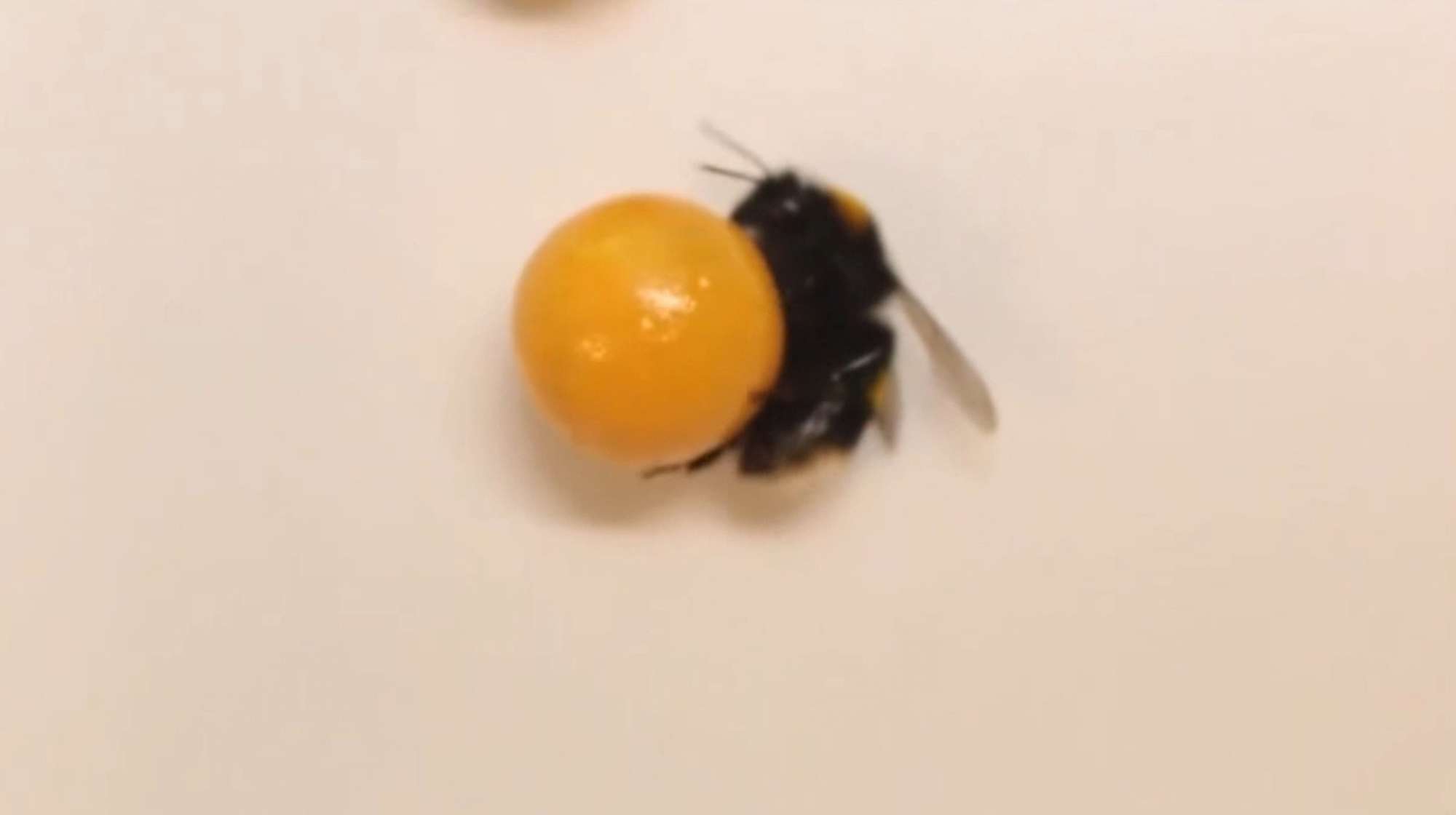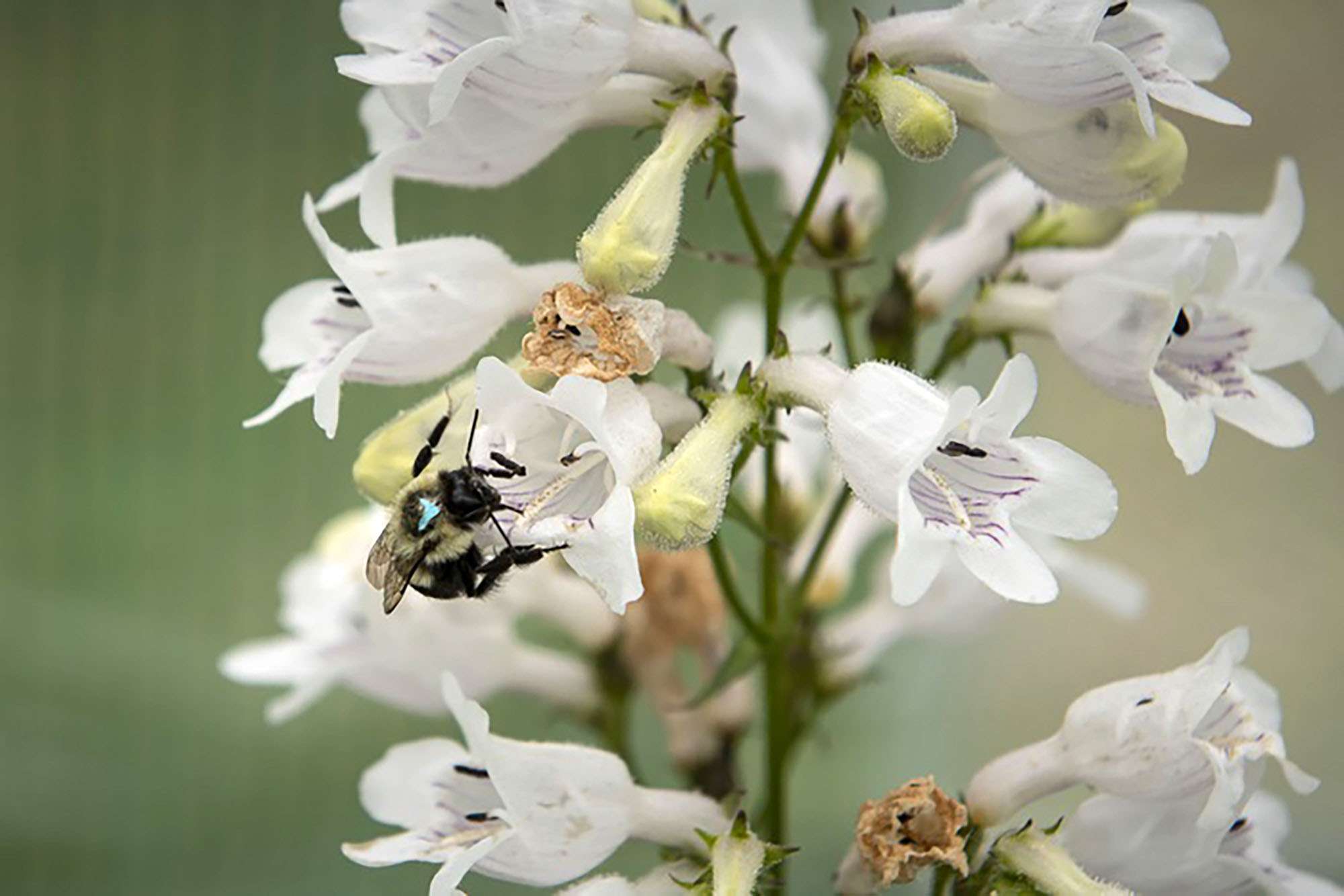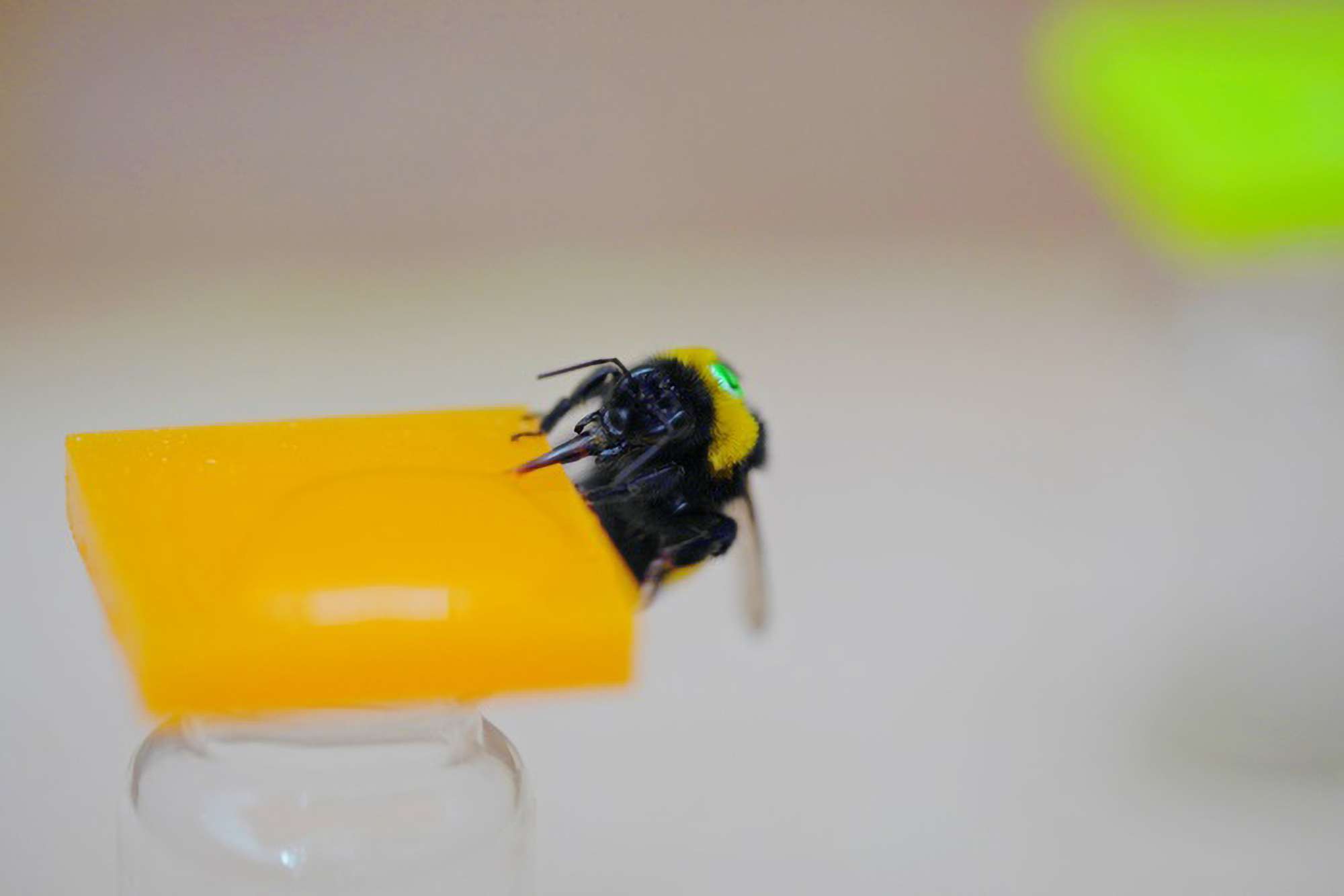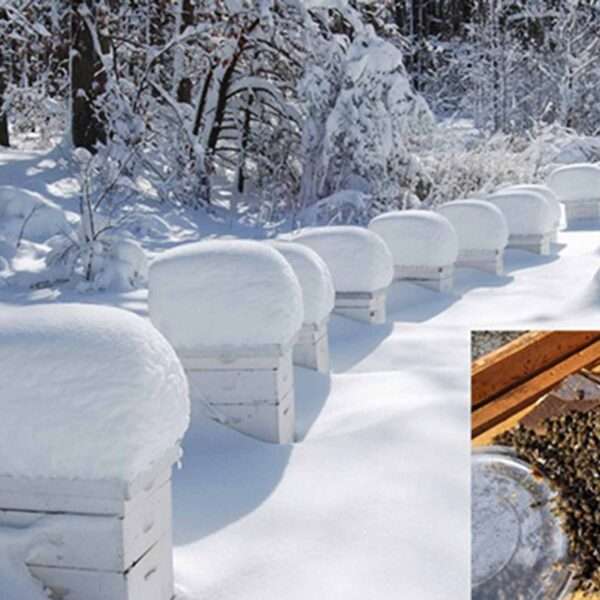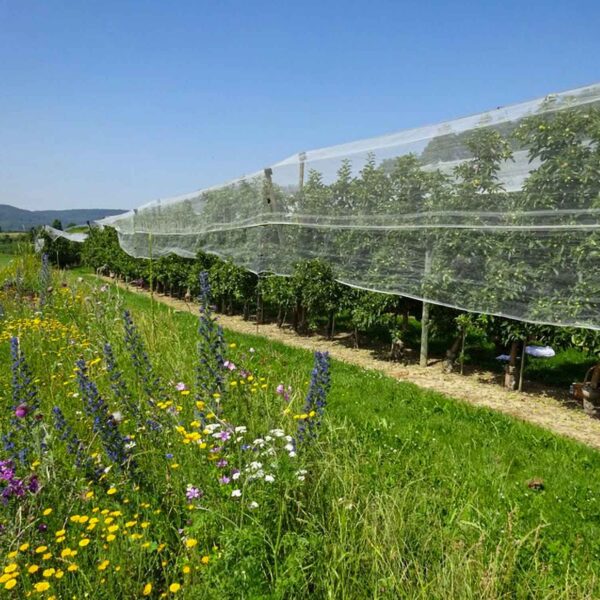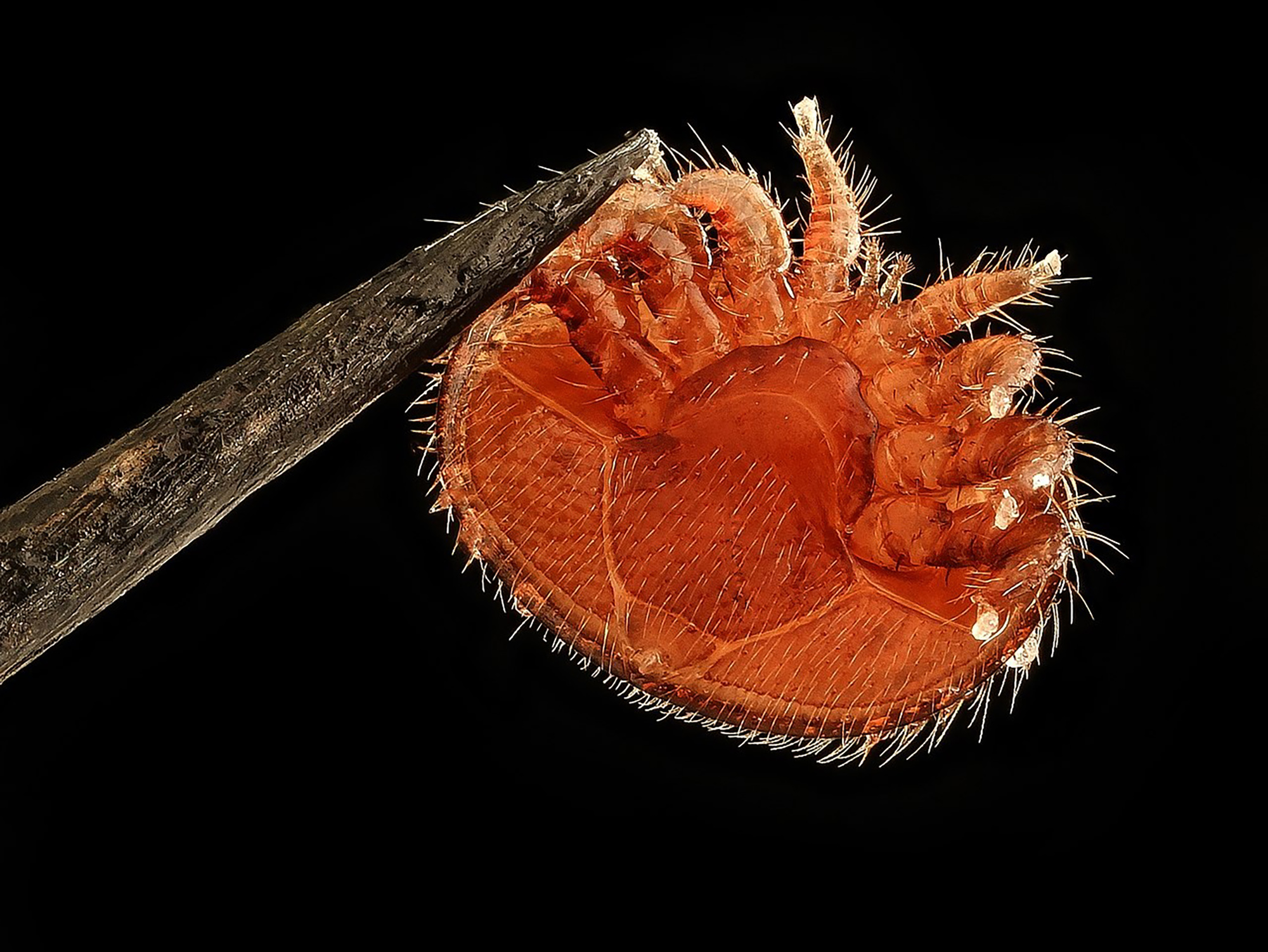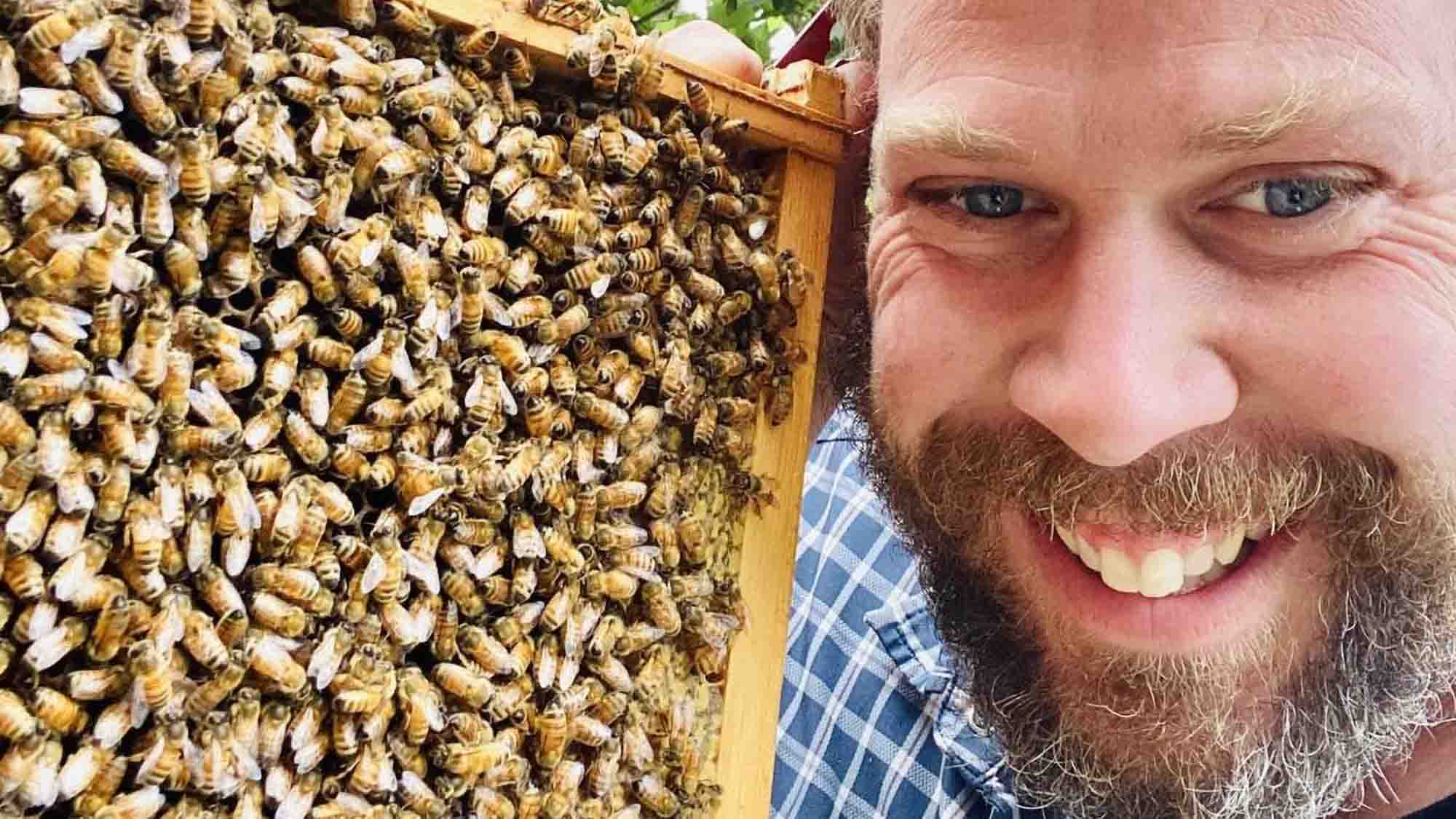Bumblebees were found to enjoy playing with wooden balls in a groundbreaking study which confirms an insect species’ interest in games for the first time.
The eagerness of mammals and birds to spend their time playing is well-known. However, it has not yet been scientifically investigated whether insects engage in the same way.
Experts from the Queen Mary University of London, Finland’s Oulu University and the University of Sheffield cooperated on a series of laboratory experiments to determine if bumblebees are keen on moving objects just for fun.
The researchers created a tunnel system which linked a nesting spot with a playing arena. They installed a lighting system which ensured a day and night rhythm simulation.
The insects – which were provided with generous amounts of sucrose and pollen – were able to move freely between the nest and the experimental space.
On the first day of the experiment, all of the 45 involved bumblebees completed intentional ball rolls of 0.4 seconds or longer at least once. Some of the participating insects were observed pushing the objects up to 44 times.
Thirty-seven bumblebees interacted with the wooden balls on the following day even after they had finished feeding on pollen and sugar water.
The team of experts on behavioural sciences said: “We found that ball-rolling did not contribute to immediate survival strategies and was intrinsically rewarding. Furthermore, it differed from functional behaviour in form, was repeated but not stereotyped and was initiated under stress-free conditions.”
They underlined: “Through the design of the experiment and with the support of behavioural observations, we excluded the possibilities that ball-rolling was driven by exploration for food, clutter clearing or mating. We explicitly show that ball rolling is itself a rewarding activity.”
The scientific tests also revealed that younger bumblebees tend to roll the wooden balls more often than older ones, and that male insects moved them around for longer durations than female members of their colony.
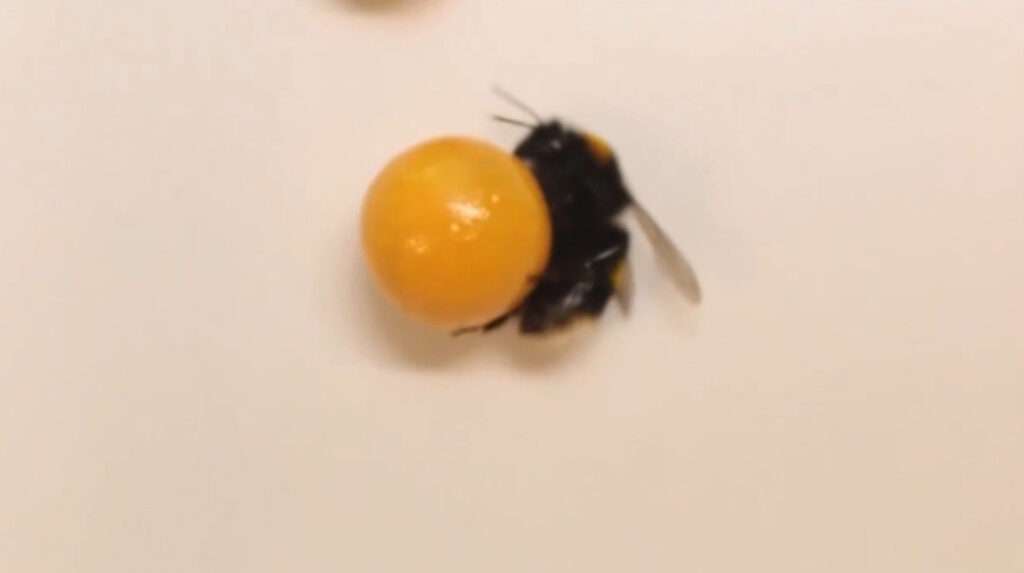
The researchers concluded: “Our results contribute to the question of sentience in insects and lend further support for the existence of positive affective states in these animals.”
“Do bumble bees play?” is the title of the six co-author’s study which has been published at ScienceDirect, a website for scientific and medical publications.
Bumblebees play an important role in ensuring healthy ecosystems. The insects – which are productive pollinators – prefer habitats in higher altitudes of the Northern Hemisphere. Their colonies can consist of up to 200 animals and a queen.
The existence of bumblebees is at risk due to habitat reduction caused by construction projects and the effect global warming has on different flowers’ blooming periods.

